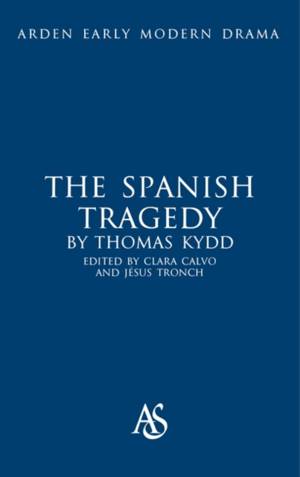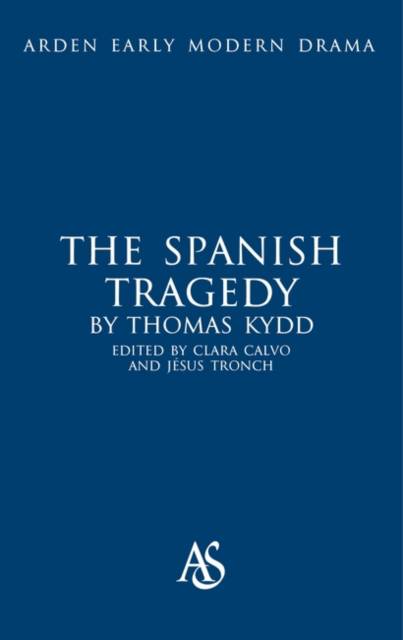
Bedankt voor het vertrouwen het afgelopen jaar! Om jou te bedanken bieden we GRATIS verzending (in België) aan op alles gedurende de hele maand januari.
- Afhalen na 1 uur in een winkel met voorraad
- In januari gratis thuislevering in België
- Ruim aanbod met 7 miljoen producten
Bedankt voor het vertrouwen het afgelopen jaar! Om jou te bedanken bieden we GRATIS verzending (in België) aan op alles gedurende de hele maand januari.
- Afhalen na 1 uur in een winkel met voorraad
- In januari gratis thuislevering in België
- Ruim aanbod met 7 miljoen producten
Zoeken
€ 208,45
+ 416 punten
Uitvoering
Omschrijving
A major new edition of Thomas Kyd's The Spanish Tragedy, an outstanding landmark of Elizabethan drama. In its time, it quickly became a box office success and probably inspired Shakespeare to write Hamlet, as it contains a ghost, murders that demand revenge and a hero that hesitates and contemplates suicide. As a revenge tragedy, it set up the salient features of a dramatic genre that would last decades. Its hero, the aged Marshall of Spain Hieronimo, whose son is murdered at night, soon transcended the play and became the standard stage representation of grief, rhetorical passion and madness. Hieronimo's main antagonist is one of the first Machiavellian characters of English drama.
This edition explores the play in relation to its historical context and contemporary Iberian dynastic policy. It also relates the play, as a literary artefact, to other artistic manifestations of the European Renaissance and offers a fresh assessment of the play's stage history. For the first time in the play's textual history, this edition presents an integrated text inviting a reading of the play as it was published both in 1592 and in 1602.
This edition explores the play in relation to its historical context and contemporary Iberian dynastic policy. It also relates the play, as a literary artefact, to other artistic manifestations of the European Renaissance and offers a fresh assessment of the play's stage history. For the first time in the play's textual history, this edition presents an integrated text inviting a reading of the play as it was published both in 1592 and in 1602.
Specificaties
Betrokkenen
- Auteur(s):
- Uitgeverij:
Inhoud
- Aantal bladzijden:
- 392
- Taal:
- Engels
- Reeks:
Eigenschappen
- Productcode (EAN):
- 9781408129982
- Verschijningsdatum:
- 14/03/2013
- Uitvoering:
- Hardcover
- Formaat:
- Genaaid
- Afmetingen:
- 135 mm x 203 mm
- Gewicht:
- 498 g

Alleen bij Standaard Boekhandel
+ 416 punten op je klantenkaart van Standaard Boekhandel
Beoordelingen
We publiceren alleen reviews die voldoen aan de voorwaarden voor reviews. Bekijk onze voorwaarden voor reviews.









